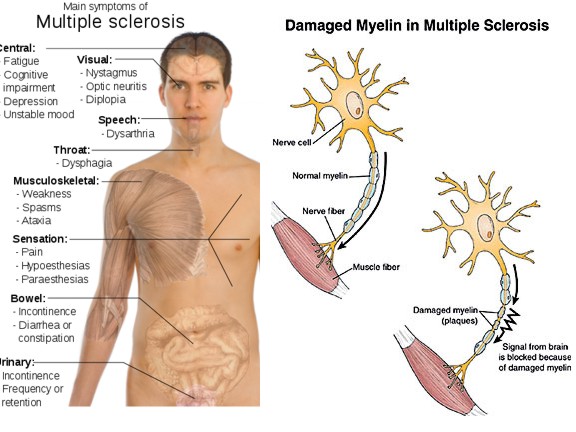
Researchers have uncovered molecular and genetic evidence that vitamin D benefits patients with multiple sclerosis (MS) who are receiving therapy.
The analysis showed that genes associated with increased vitamin D levels — 25-hydroxyvitamin D or 25(OH)D — and with interferon β-1b are also associated with a decrease in gadolinium-enhancing lesion (Gd+ lesion) counts.
While other studies have shown that vitamin D may reduce the risk for MS and may even be important in the progression of the disease, that research couldn't "tease out" the molecular or genetic mechanisms behind this effect, said study author Kassandra L. Munger, ScD, research associate, Harvard School of Public Health, Boston, Massachusetts.
The new analysis, reported here at the 5th Cooperative Meeting of the Consortium of Multiple Sclerosis Centers (CMSC) and the Americas Committee for Treatment and Research In Multiple Sclerosis (ACTRIMS), used data from theBEtaferon (BEtaseron) in Newly Emerging MS For Initial Treatment (BENEFIT) study that examined the safety and efficacy of early interferon β-1b treatment in 468 patients with clinically isolated syndrome.
Patients were randomly assigned to interferon β-1b (250 μg subcutaneously) every other day (early treatment) or to placebo (delayed treatment) and followed for 2 years for the development of MS.
Patients underwent MRI and had blood samples taken at baseline and at 2, 3, 12, and 24 months.
The main results of the BENEFIT study showed significant improvements in clinical and radiologic outcomes in patients who received early treatment compared with those who had delayed treatment with interferon β-1b after a follow-up of up to 8.7 years.
In this analysis, the researchers used samples from this population to assess levels of 25(OH)D and measured gene expression.
They observed a seasonal fluctuation in vitamin D levels that "mirrored" fluctuations in Gd+ lesion counts, although this could be "purely correlational," said Dr. Munger.
Looking at quintiles of vitamin D levels, the researchers noted that the highest vitamin levels were associated with lower lesion counts. "There is about a 57% reduced risk of new gadolinium lesions with every 50 nmol/liter increase in vitamin D," said Dr. Munger.
When the researchers included interferon β-1b, which is known to reduce lesions, into the model, the study found that both vitamin D levels (P = .0001) and interferon (P < .0001) were statistically significantly protective against the development of new lesions.
"This suggests that vitamin D is contributing something," said Dr. Munger.
But she and her colleagues also wanted to see whether genes play a role. The gene expression analysis of whole blood samples showed there were 63 genes associated with vitamin D, 770 genes associated with interferon β-1b, and more than 5000 genes associated with the Gd+ lesions.
It also showed a fair amount of overlap between all 3 gene sets, suggesting shared pathways. Further, a functional classification showed that these overlapping genes tend to fall into categories associated with immune response, suggesting a defense response to bacteria.
Adding Vitamin D
Asked for his opinion of this latest vitamin D research, Robert P. Lisak, MD, Wayne State University Medical Center, Detroit, Michigan, said it's useful.
"It's an add-on study and add-ons are useful to show probability," he said. "It suggests that on the basis of MRI predominantly that there's additional benefit above and beyond interferon's benefit, which is considerable."
The study "doesn't prove that vitamin D by itself does anything, but suggests that adding vitamin D to interferon beta certainly wouldn't hurt," said Dr. Lisak.
However, he stressed that vitamin D should not be at a "toxic level," and patients should not have hypercalcemia.
That adding vitamin D to other MS therapies would have the same benefit "wouldn't surprise me," added Dr. Lisak.
Research was supported by Bayern HealthCare Pharmaceuticals Inc. Dr. Munger has disclosed no relevant financial relationships.
5th Cooperative Meeting of the Consortium of Multiple Sclerosis Centers (CMSC) and the Americas Committee for Treatment and Research In Multiple Sclerosis (ACTRIMS). Poster DX10. Presented May 30, 2013.





 留言列表
留言列表
 線上藥物查詢
線上藥物查詢 